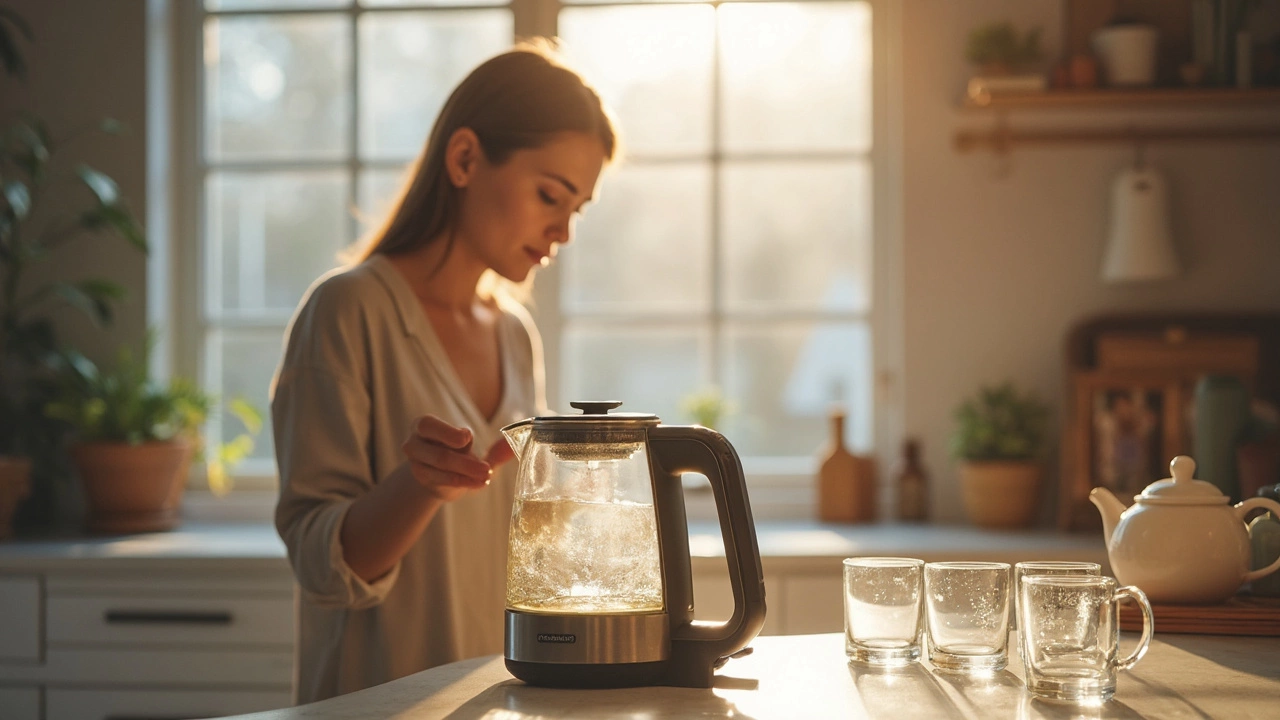Water is everywhere – in the tap, in the kettle, in the dishwasher. It’s easy to forget that a little care can stop burns, leaks, and nasty germs. Below are simple things you can do today to make sure the water in your house stays safe and clean.
Hot water that’s too hot can scald kids and pets. Set your water heater to 120 °F (49 °C). Most modern heaters let you turn a dial or use a digital panel. If you’re not sure how, look for the temperature label on the side of the tank or call a local plumber.
When you fill a kettle or use a smart tea machine, wait a few seconds after the water reaches a boil before pouring. That tiny pause lowers the risk of splashes that can burn.
If you’re not 100 % sure about the water quality – from a recent pipe repair or a city advisory – boil it for at least one minute. Let it cool, then store it in a clean, covered container. This kills most bacteria and makes the water safe for tea, coffee, and baby formula.
For everyday use, a good filter can catch chlorine and sediment, but it won’t remove all germs. Pair a filter with regular boiling if you have any doubt.
A slow leak can waste gallons of water and cause hidden mould. Check under sinks, behind appliances, and around toilets for drips. If you see a wet spot, dry it, then turn the supply valve off and call a plumber.
Many modern washing machines and dishwashers have leak detection sensors that shut off water when a problem is found. Make sure these features are enabled in the settings.
Electric kettles, instant hot taps, and smart tea makers are great, but they need regular cleaning. Scale buildup can cause overheating. Wipe the interior with a vinegar solution every month.
Dishwashers use hot water to clean dishes, but the spray arm can get clogged with food bits. Remove and rinse it regularly to keep water flow strong.
Kids love to play with water, but they need rules. Teach them never to touch hot taps, never to leave the kettle unattended, and to tell an adult if they see a leak.
Keep bathroom doors closed when not in use and use anti‑slip mats to prevent falls on wet floors.
Following these easy steps will keep your water safe, your appliances running smoothly, and your family protected. A few minutes of checking and cleaning now saves headaches – and possibly costly repairs – later.

Wondering if the way you boil water could affect your health? Turns out, the appliance you use and how you use it really matter. This article digs into electric kettles and how to choose the safest options. You’ll pick up habits that actually protect your water’s purity and taste. Expect smart tips and no nonsense—just what you need for better, cleaner boiling every day.